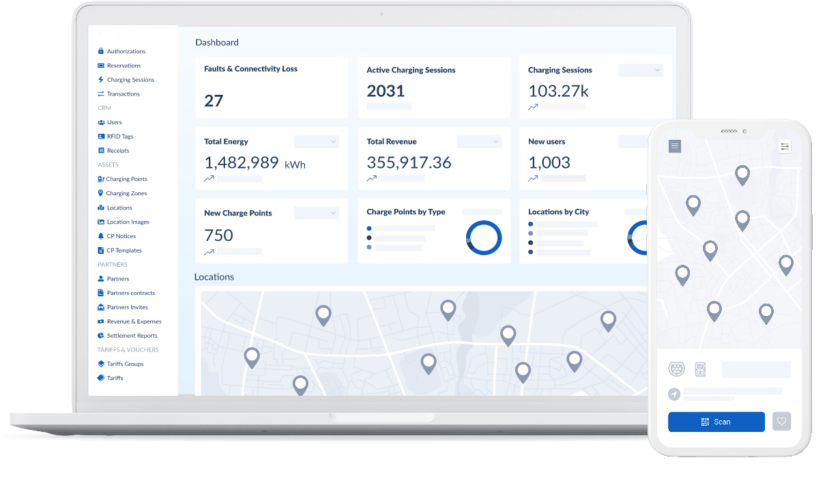 In the realm of electric vehicle (EV) charging, two prominent acronyms often come up: OCPI and OCPP. While they might sound similar, they serve different purposes in the EV charging ecosystem. Let’s delve into what OCPI is and how it relates to OCPP.
In the realm of electric vehicle (EV) charging, two prominent acronyms often come up: OCPI and OCPP. While they might sound similar, they serve different purposes in the EV charging ecosystem. Let’s delve into what OCPI is and how it relates to OCPP.
What is OCPI (Open Charge Point Interface)?
OCPI, which stands for Open Charge Point Interface, is an open standard protocol designed to facilitate communication and interoperability among various EV charging networks, operators, and service providers. Its primary objective is to enable seamless roaming and easy access to charging infrastructure across different charging networks, making it convenient for EV drivers to charge their vehicles wherever they go.
Key features of OCPI include:
- Roaming Capabilities: OCPI enables EV drivers to access charging stations on different networks using a single access card or mobile app.
- Real-time Information: It provides real-time information about the availability and status of charging points, helping drivers find an available charger quickly.
- Transaction Handling: OCPI supports the exchange of transaction data, ensuring that charging sessions are accurately recorded and billed.
What is OCPP (Open Charge Point Protocol)?
In contrast, OCPP, or Open Charge Point Protocol, is a communication protocol primarily used for interactions between Electric Vehicle Supply Equipment (EVSE or charging stations) and central management systems (CMS) or back-office servers. OCPP ensures that charging stations can communicate with network operators’ systems effectively.
Key features of OCPP include:
- Remote Management: It allows for remote management of charging stations, including firmware updates, status monitoring, and configuration changes.
- Data Exchange: OCPP facilitates the exchange of data between charging stations and central systems, ensuring that charging sessions are properly managed.
- Security: It includes security measures to protect communication between charging stations and central systems.
The Relationship Between OCPI and OCPP:
While OCPI and OCPP serve different purposes, they are complementary in the EV charging ecosystem. OCPI focuses on enabling easy access and roaming for EV drivers across various charging networks, ensuring a seamless user experience. OCPP, on the other hand, deals with the technical aspects of communication between charging stations and central systems.
In practice, many charging networks and operators use both OCPI and OCPP to provide a comprehensive EV charging service. For example, OCPI might be used to enable roaming for EV drivers, while OCPP ensures that the charging stations are managed efficiently and can communicate with the network operator’s systems.
In summary, OCPI and OCPP are essential components of the evolving EV charging infrastructure. While they serve distinct purposes, their combined use contributes to a more accessible, efficient, and user-friendly charging experience for electric vehicle owners.
